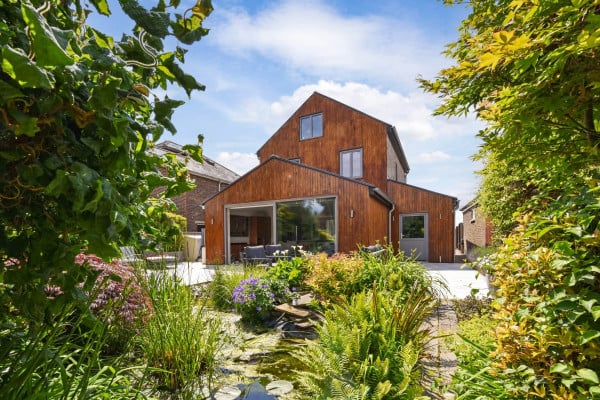How Long is a Property Chain?
1.png)
In case you don't know by now, a property chain is when multiple transactions are linked together and need to be completed at the same time for each sale to be successful. However, many buyers and sellers often wonder about the length of a property chain.
If you happen to be one of those people with questions about chains and their subsequent length, you've come to the right place. In this guide, we're bringing you an overview about the length of a property chain.
The length of a property chain
The average sale time for a home can be anywhere between eight weeks to six months. One of the primary reasons for such varying sales times is because of chains. A property chain can add a significant amount of time if several sales need to transact.
Of course, one of the major aspects that contributes to sale time is the length of a property chain. And asking the question is a bit like trying to find out the length of a piece of string. Your property chain could contain yourself and the person you're buying from.
However, it may also involve the buyers of your house, the vendor you're buying from and the person their buying from. Confused? Unfortunately, that can be the nature of the property chain. The longer the chain, the more complex the process and the longer it will take for a transaction to complete.
Shortening a property chain
There isn't a way to shorten a property chain, as such. You won't have control over the amount buyers and sellers who are involved. However, if you're buying chain free, you can mitigate aspects of the chain and potentially avoid it altogether.
Buying chain-free typically sees the buyer purchase a home with cash or without the need to rely on selling their own property. Being a cash buyer can prove difficult, unless you have a Scrooge Mcduck-type money pit in your basement.
That means your primary option for avoiding lengthy property chains revolves around you buying without selling. One way of doing this is to sell your home and then rent a property while you look for a new home. Yet, such a method isn't cost effective.
But there are alternatives…

Other options for reducing the length of a property chain
In the US, a method called iBuying – and no, it's not a product from Apple – has become hugely popular. iBuying involves the estate agent (us) buying the home and then selling it on the market, with the seller free to look for a home without relying on their house sale coinciding with the purchase.
People can sell their house fast too, avoiding the lengthy process that typically delays proceedings in the UK property market. In the US, six-million plus homes have sold through iBuying in less than two years, and it's now becoming a popular option in the UK.
.png)
Sell or Let Your Property Yourself – Why More UK Homeowners Are Choosing to Go Online
03.02.2026Selling or letting a property no longer has to mean handing over thousands of pounds to a traditional estate agent.
.png)
Before You List: Watch Emoov’s Top Tips for Home Sellers
20.01.2026Thinking about selling your home? Before you list, it’s worth taking a few minutes to watch this short video from emoov, where we break down the key steps every seller should take before going live online.
.png)
A Step-by-Step Video Guide: Uploading a Property
23.12.2025This guide explains how to upload your property listing on Emoov, with a step-by-step video and expert tips on photography, presentation, floorplans, descriptions and video tours to help you get your home live quickly.

Selling Your Home? Here’s What You’ll Need to Have Ready
28.11.2025Thinking of selling your home yourself? Before you dive into viewings and negotiations, make sure your paperwork is in order.

Has Your Home Increased in Value? What 2025 Property Prices Mean for Sellers
30.10.2025Homeowners across the UK are asking the same question: has my property increased in value over the last few years? With new figures showing that over a million homes have jumped by more than 50% in value since 2020, it might be time to take a closer look. Whether you're considering selling, remortgaging, or just curious, here's how to understand your home's worth in today's market.

When and How to Downsize: A DIY Guide to Smarter Selling
12.08.2025Feeling ready to simplify life and unlock your property’s hidden equity? Whether your kids have flown the nest or you're eyeing retirement, downsizing can offer financial freedom … but it’s not as simple as it looks. This guide helps DIY sellers time the move right, budget wisely, and avoid unexpected costs that could eat into your gains.









